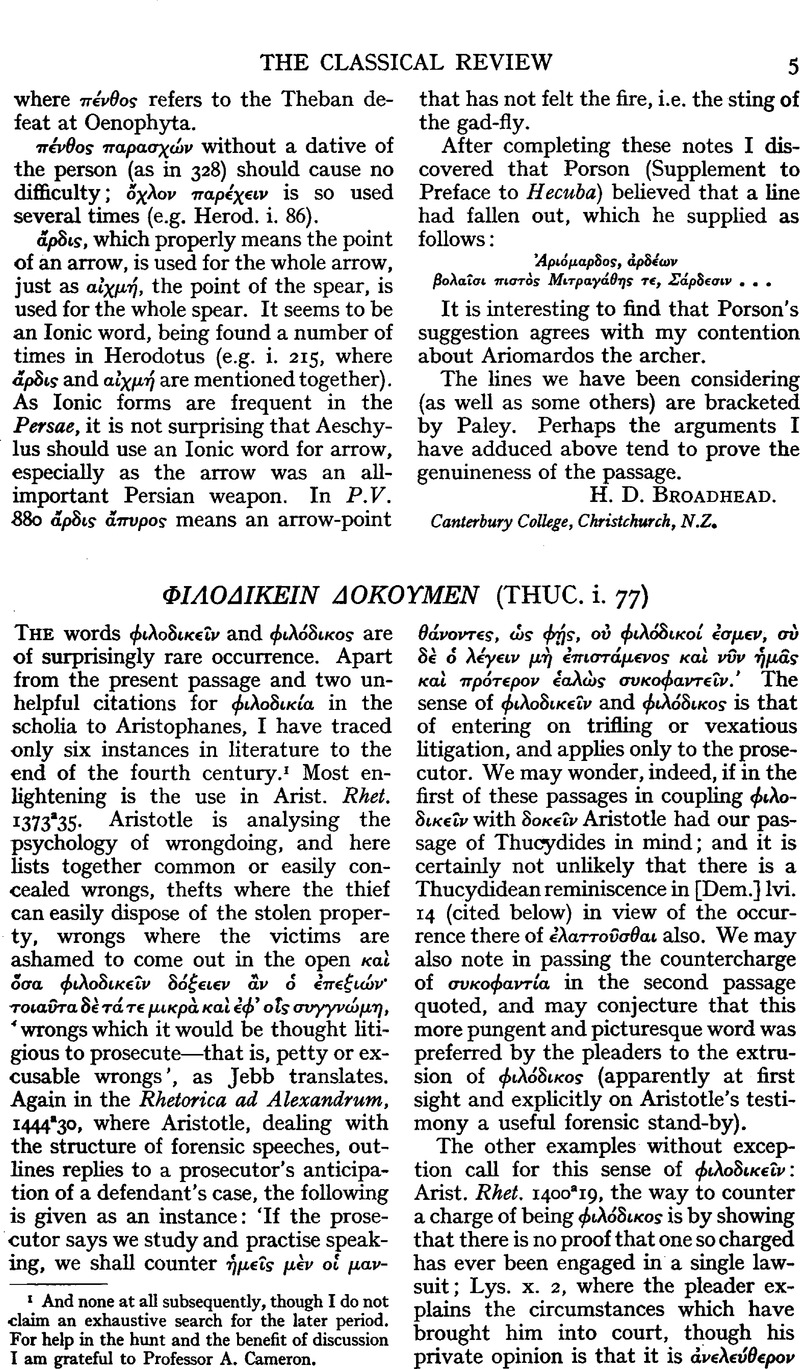No CrossRef data available.
Published online by Cambridge University Press: 27 October 2009

page 5 note 1 And none at all subsequently, though I do not claim an exhaustive search for the later period. For help in the hunt and the benefit of discussion I am grateful to Professor A. Cameron.
page 6 note 1 P. 237, ‘The charge of litigiousness can only follow the establishment of courts in Athens’. I would, indeed, quarrel with most of this paragraph, especially with 1. II, ‘We might have used force; instead we establish law-courts’; the argument is no more than ‘instead we go to law (δικζεσθαι)’.
page 6 note 2 Carried to extremes by Bonner, R. J., C.P. xiv (1919), p. 286Google Scholar, who translates φιλοδικεῖν as if it were φιληλιαστα εἷναι.
page 6 note 1 Not, as Gomme, op. cit., p. 243, answering a particular charge.